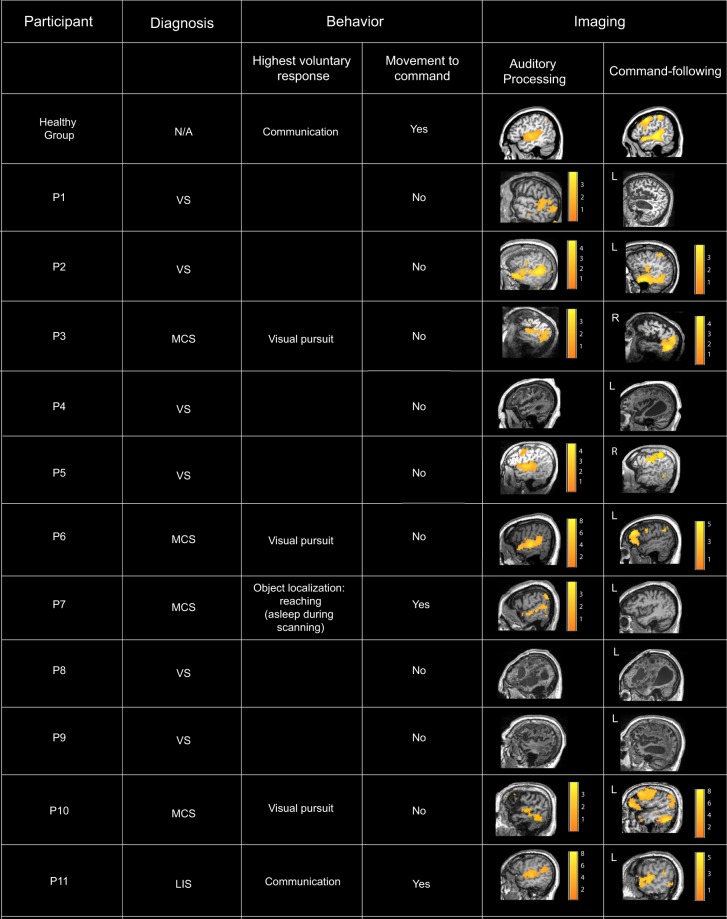Figure 6.
Summary of DoC patients’ clinical and fMRI assessment data. Auditory processing. In the fMRI assessment, three patients clinically diagnosed to be in a VS did not show evidence of auditory processing. The other eight patients who showed evidence of auditory processing, two patients clinically diagnosed as VS did not show evidence of brain-based command-following, and the other six, including two diagnosed as VS, showed evidence of brain-based command-following, and thus, of covert awareness. Command-following. 6/11 patients followed task commands by willfully modulating their brain activity as requested, and thus, provided evidence of conscious awareness. Two of these (P2, P5) presented a CMD profile, or a behavioral diagnosis of VS that was inconsistent with their positive fMRI results. 5/11 patients showed no evidence of willful responses in the fMRI command-following task, and, thus, provided no neuroimaging evidence of awareness. One (P7) showed no neuroimaging evidence of awareness despite an MCS diagnosis, due to falling asleep in the scanner for the entirely of the session (Materials and Methods).

